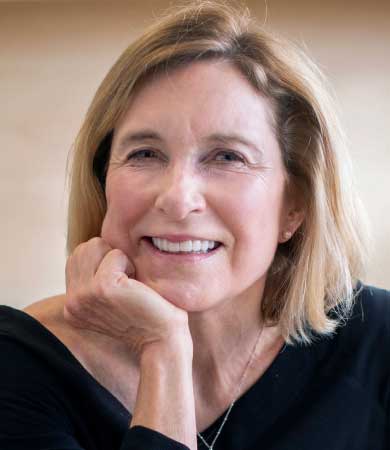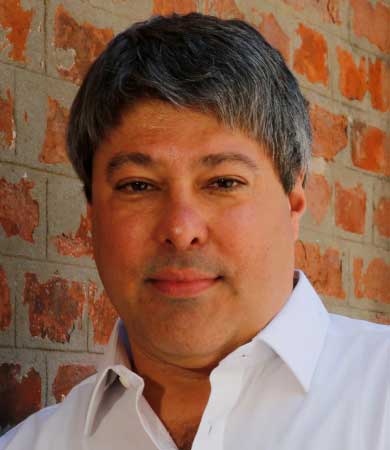2022 APS Board of Directors Election
Voting in the 2022 APS Board of Directors election has concluded and the results are in!
Wendy Wood will begin her term as APS President-Elect in June 2022, and will be joined by new APS Board Members-at-Large John T. Jost and Ayanna Thomas, as they begin their three-year terms.
Thank you to all who stood for office and to all who cast a ballot! Thank you also to departing APS Past President Shinobu Kitayama and departing Members-at-Large Ann M. Kring and Michele J. Gelfand for their invaluable service to APS and the field.
APS President-Elect
Wendy Wood
University of Southern California

Wendy Wood is Provost Professor of Psychology and Business at the University of Southern California. Her research has addressed basic questions in psychology, including behavior change, social influence, and gender. Most recently, her work addresses the persistence of behavior change — how to make it stick — through the psychology of habit formation and change (summarized in the book, Good Habits, Bad Habits). Her work has been supported by NSF, NIH, and the Templeton Foundation and has been recognized with the 2021 Career Contribution Award from the Society of Personality and Social Psychology, the 2020 Distinguished Scholar Award from the Attitudes and Social Influence Group, and a 2007 Radcliffe Fellowship. Her past leadership includes president of Society for Personality and Social Psychology, associate editor of Psychological Review and Journal of Personality and Social Psychology, Vice Dean of Social Sciences at USC, head of the interdisciplinary Social Science Research Institute at Duke University, and Vice President for Research at Texas A&M University. Wood has promoted APS’s mission to use psychological science in the public interest through such roles as senior disciplinary editor of Behavioral Science & Policy, executive committee member of NASEM’s Societal Experts Action Committee, and the development of behavioral interventions for the U.S. Paper & Packaging Board to encourage recycling and the CDC for diabetes management. She hopes to further develop APS’s advocacy of basic psychological research and training as well as the dissemination of science through evidence-based public policy and the promotion of human welfare.
APS Board Members-at-Large
John T. Jost
New York University

John T. Jost is Professor of Psychology and Politics and (by affiliation) Data Science at New York University, where he directs the Social Justice Lab. He is also Co-Director of the Center for Social and Political Behavior. Jost’s research addresses social stereotyping, prejudice, intergroup relations, social justice, political ideology, system justification, and the use of social media. His most recent books are A Theory of System Justification (Harvard University Press, 2020) and Left & Right: The Psychological Significance of a Political Distinction (Oxford University Press, 2021). Awards he has received include the Gordon Allport Intergroup Relations Prize, Erik Erikson Early Career Award in Political Psychology, Society for Personality and Social Psychology Theoretical Innovation Prize, Society of Experimental Social Psychology Career Trajectory Award, Carol & Ed Diener Award in Social Psychology, and the Morton Deutsch Award for Distinguished Contributions to Social Justice. Jost is a Fellow of several professional societies and serves on numerous editorial boards. He is a Past President of the International Society of Political Psychology and has received honorary doctorates from the University of Buenos Aires, Argentina, and Eötvös Lorand University (ELTE) in Budapest, Hungary. Jost hopes to promote the further internationalization of APS and to support their initiatives to improve the quality of psychological science as a unified discipline and to insure diversity and excellence. He also seeks to strengthen public policy and public discourse based on principles of behavioral science.
Ayanna Thomas
Tufts University

Ayanna Thomas is Dean of Research in Arts and Sciences and Professor at Tufts University. Thomas takes a translational approach to the study of memory and age-related changes in cognition. Thomas’s research group uses a variety of methodological techniques (e.g., behavioral, physiological, neurocognitive) to better understand the cognitive and biological mechanisms that result in successful memory and cognition. She is a fellow of the Association for Psychological Science, a fellow of the Psychonomic Society, an APA MFP fellow, a founding member of the SPARK Society designed to increase diversity in Cognitive Psychology, an invited member of the Memory Disorders Research Society, a member of the Society for Experimental Psychologists, and Editor-in-Chief of the journal Memory and Cognition. Thomas is the 2021 winner of the Psychonomic Society Mid-Career Award and the 2018 winner of the Dalmas A. Taylor Distinguished Contributions Award. Thomas investigates interactions between memory and metamemory to better understand the role metamemory plays in memory acquisition, distortion, and access. She examines these questions using a balanced approach towards basic and applied designs as they relate to education, eyewitness memory, and age-related changes in memory. Her early work demonstrated that the incorrect recombination of memorial attributes resulted in witness memory error and false memory creation. Her more recent work has demonstrated that memory errors can be exacerbated by reducing individual’s ability to exercise metacognitive control at retrieval, and, in parallel, errors may be reduced when individuals effectively engage in retrieval-monitoring processes and exercise control over output. Her research is supported by the National Institute on Aging, and the National Science Foundation. She regularly contributes to popular podcasts that focus on disseminating research findings to general audiences.

